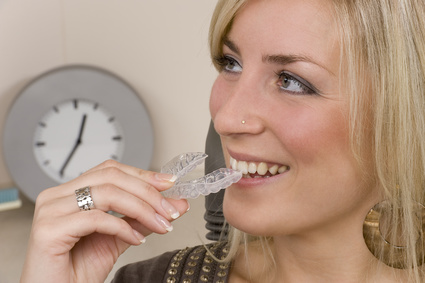TMJ disorder treatment in Nanaimo, BC

TMJ disorder, or TMD, happens when a patient experiences pain or swelling in these areas. There are many different causes of this condition, and treatment options. For acute pain, over the counter pain relievers such as advil or tylenol may be taken. However, it’s best to try and determine what is causing the pain, and to develop a plan for long term management of the pain. Possible causes could include:
- Wisdom teeth eruption/ impaction
Sometimes the pain associated with impacted wisdom teeth can manifest as pain in the jaw joint area. If you are suffering from TMJ pain and still have some or all of your wisdom teeth, your dentist may suggest removal to see if that alleviates the pain.
- Bruxism (nighttime grinding or clenching of the jaw)
Many patients grind their teeth and clench their day, sometimes unconsciously. The jaw exerts a lot of force, and overtime this pressure and tension can cause pain. Patients who frequently grind their teeth will often have damaged and broken teeth as a result of long term pressure and friction. If this is thought to be the cause of your TMJ pain, your dentist can have a nightguard custom created for you to serve as a cushion between your teeth. Nightguards are usually made of a clear plastic, and can also be worn during the day if needed.
- Arthritis
Let your dentist or doctor know if you have arthritis. Arthritis pain can sometimes affect the jaw joints as well as other parts of the body.
- Misalignment of the teeth and jaw
If the jaw and teeth are misaligned, it can cause uneven pressure to be put on the jaw joints when chewing. This imbalance can lead to pain overtime. Treatment options for misalignment issues include traditional metal bracket braces and the Invisalign system.
- Stress
Stress or anxiety can worsen bruxism and add to pain and tension in the jaw joint area. Speak to your doctor or dentist about possible stress management options if stress is an ongoing issue for you.
- Poor posture
Frequently slouching, sitting or standing with poor posture can impact the jaw joints. For example, patients with forward head posture are more susceptible to headaches, facial neck and jaw pain due to the added stress caused by improper posture.
- Excess intake of caffeine, alcohol or tobacco. The exact link is unknown, but many patients find that caffeine, alcohol and tobacco trigger or worsen TMJ symptoms for them.
Often times, there is more than one issue at play contributing to the TMJ pain a patient is experiencing. It is best to visit your dentist for a checkup to help get to the root of the TMJ pain, and for the best possible chance of effectively treating the pain.
